Sep 13. 2024 - Latest News
On September 5, the School of Design at Southern University of Science and Technology (SUSTech) and the Tencent Research Institute jointly held the Phase I Conclusion Seminar for "AI and Sustainable Development Outlook" and the Phase II Workshop on "AI Sustainable Development and Industrial Applications." The event featured in-depth exchanges and discussions under the themes of "AI Industrial Applications / Advanced Manufacturing and Sustainability" and "Interdisciplinary Research Papers and International Cooperation."
The seminar was chaired by Researcher Li Zi from the Tencent Research Institute. Participants included Professor Ren Ting, Associate Dean of the Peking University HSBC Business School, and his team members Dr. Shen Xuhang and Dr. Zhou Yu; Professor Hao Liang, Professor He Jingzhi, and Assistant Professor Xia Ruowei from the SUSTech School of Design; Assistant Professor Wang Lin, Assistant Professor Wei Wei, Assistant Professor Wang Zeyu, and Assistant Professor Liang Yuxuan from the Hong Kong University of Science and Technology (Guangzhou); Professor Zhao Junhua’s team from The Chinese University of Hong Kong, Shenzhen; Research Associate Professor Huang Ping from the International Affairs Research Institute at The Chinese University of Hong Kong, Shenzhen; PhD student Ruan Min from the University of Oxford, UK; Chen Chaoguang, Head of Lightspeed Hong Kong Studio at Tencent Games; Yang Yanzhe, Strategic Lead at TCL Thunderbird; Li Laishun, General Manager of Wanzhaolian Technology; Tu Huaiying from the China-Britain Business Council; Chen Yinan, Director of Global Journal Strategic Cooperation in China at Elsevier; Zhou Wenyi; and Yin Pengling, Chief Data Officer at RELX Group. Experts, scholars, and leaders from the technology and innovation sectors shared reports and conclusions on AI sustainability.
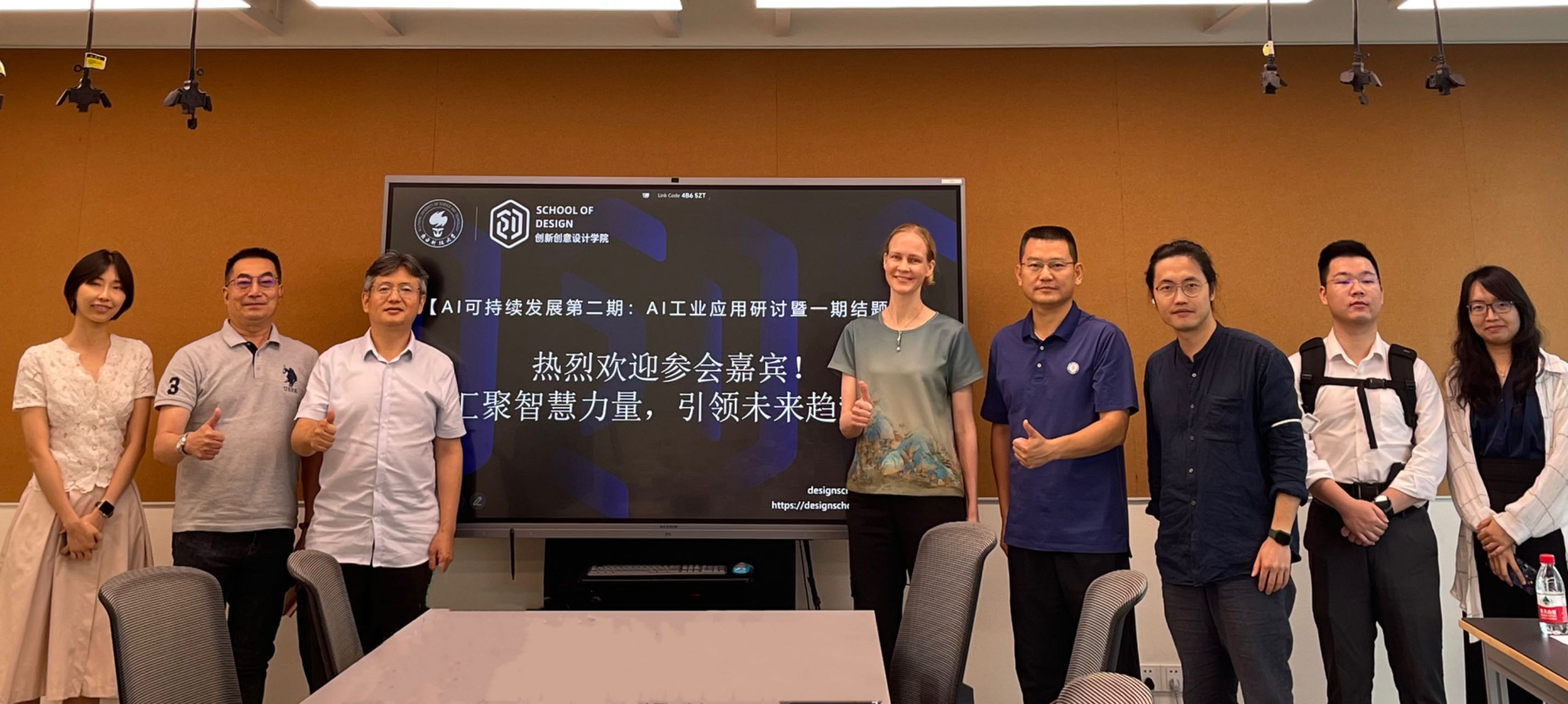
Group Photo of the Seminar
The meeting discussed the broad application and potential of AI technology across various fields, including technical infrastructure development, talent demands, global competition, and industrial applications, as well as its role in promoting sustainability within advanced manufacturing. AI is not only driving transformation across economic and social sectors but also bringing new challenges and opportunities. By establishing cooperative platforms and enhancing collaboration, the integration of AI technology, advanced manufacturing, and sustainable development can be further advanced. Guest speakers shared insights and examples from their respective fields, with key highlights including:
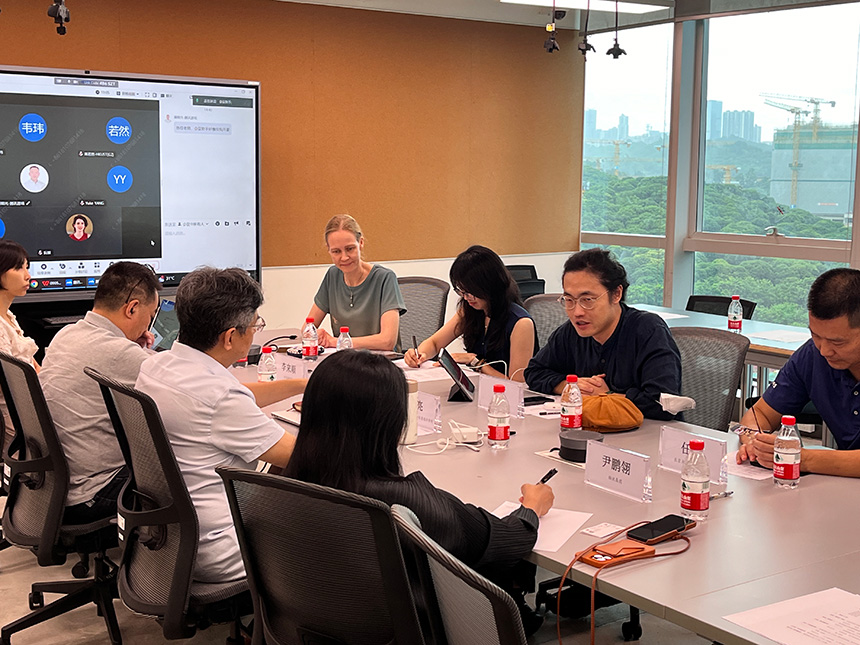
Scene of the Seminar
Through government projects and academic research, estimating computing power demands and analyzing their evolution with AI development—while building a new generation of information infrastructure, promoting standardized operations, and providing policy recommendations—can foster regional economic and technological progress.
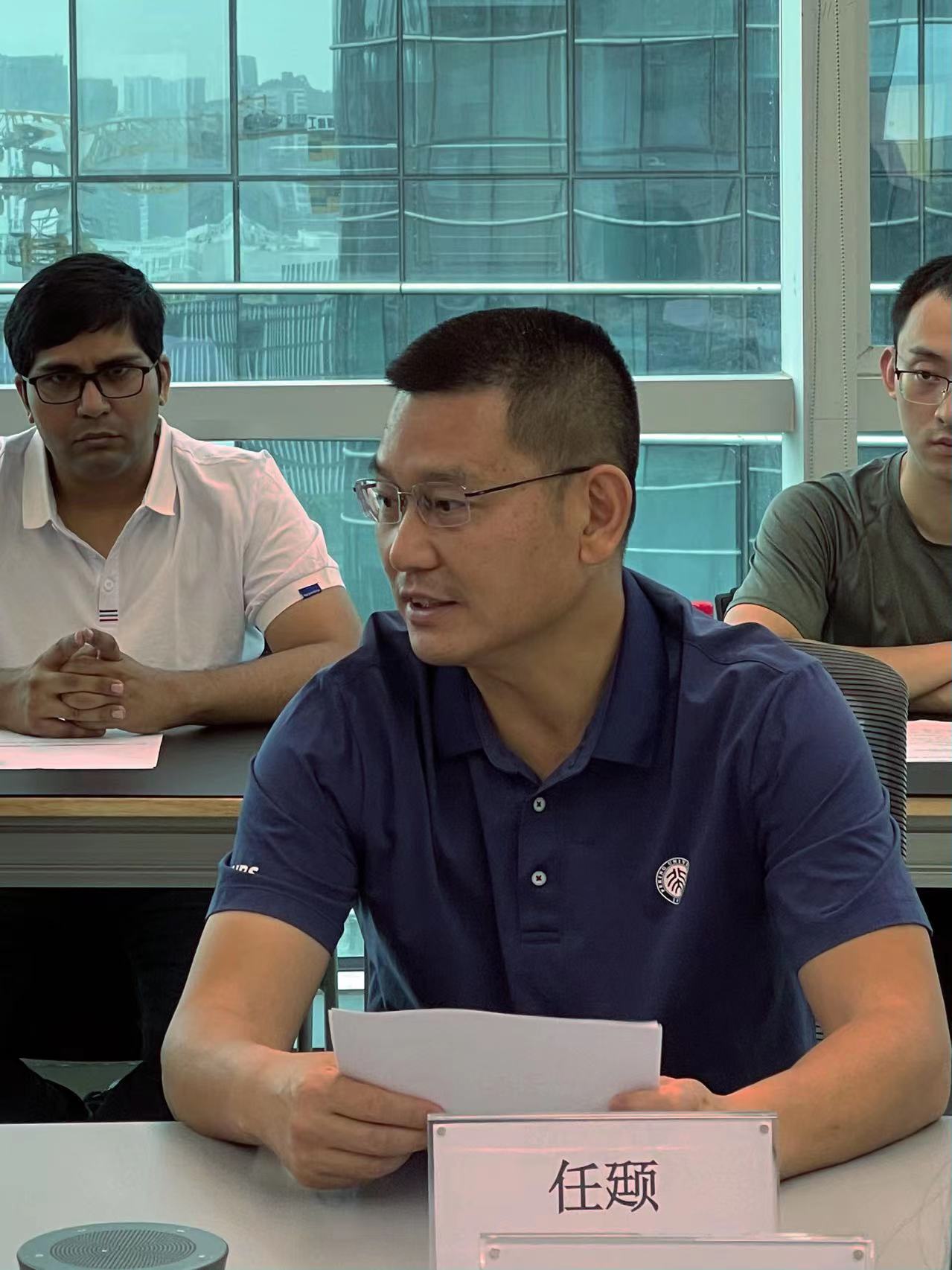
Professor Ren Ting, Associate Dean of the Peking University HSBC Business School
When pursuing cutting-edge AI achievements, universities and enterprises should also consider their broader impact on society, economy, and politics. Using AI for digital management can reduce emission reduction costs in market economies where emissions are traded. AI-driven energy consumption and performance forecasting, along with spatiotemporal data mining, can help identify and address urban issues such as air quality and parking availability.
Regarding sustainable industrial applications of AI, Professor Hao Liang introduced the School of Design’s research approach in creative design and manufacturing, discussed interdisciplinary research frameworks integrating energy, industry, climate, and aerospace, and proposed building and validating application scenarios by leveraging Shenzhen’s strengths in advanced manufacturing, digital gaming, and low-altitude economy. For example, using biodegradable and recyclable materials could enable emerging 3D printing farm models to integrate green energy for sustainable development. Shenzhen currently supplies 90% of the world’s desktop 3D printing farm equipment, providing excellent hardware foundations.
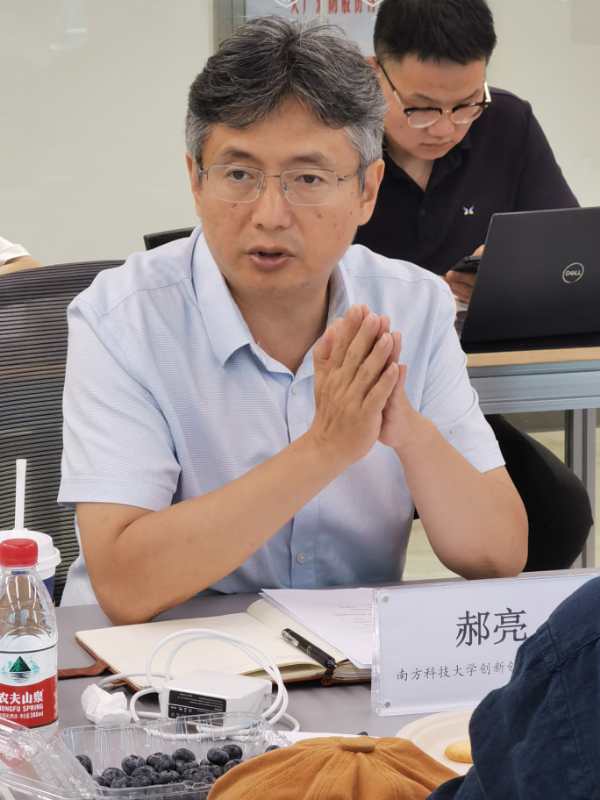
Professor Hao Liang from the SUSTech School of Design
The widely acclaimed video game "Black Myth: Wukong" has significantly improved production efficiency by combining AI technology with game engines. It is worth mentioning that Hong Kong excels in 2D/3D asset production. Additionally, AI-generated music/audio has performed exceptionally well. In the realm of serious games, integrating physical and virtual interfaces with AI technology allows for expanded validation and exploration of innovative interactive experiences in the physical world through tangible interfaces. Among these, using embodied molds to mimic human senses can enable deeper research and expansion in machine vision and human-computer interaction.
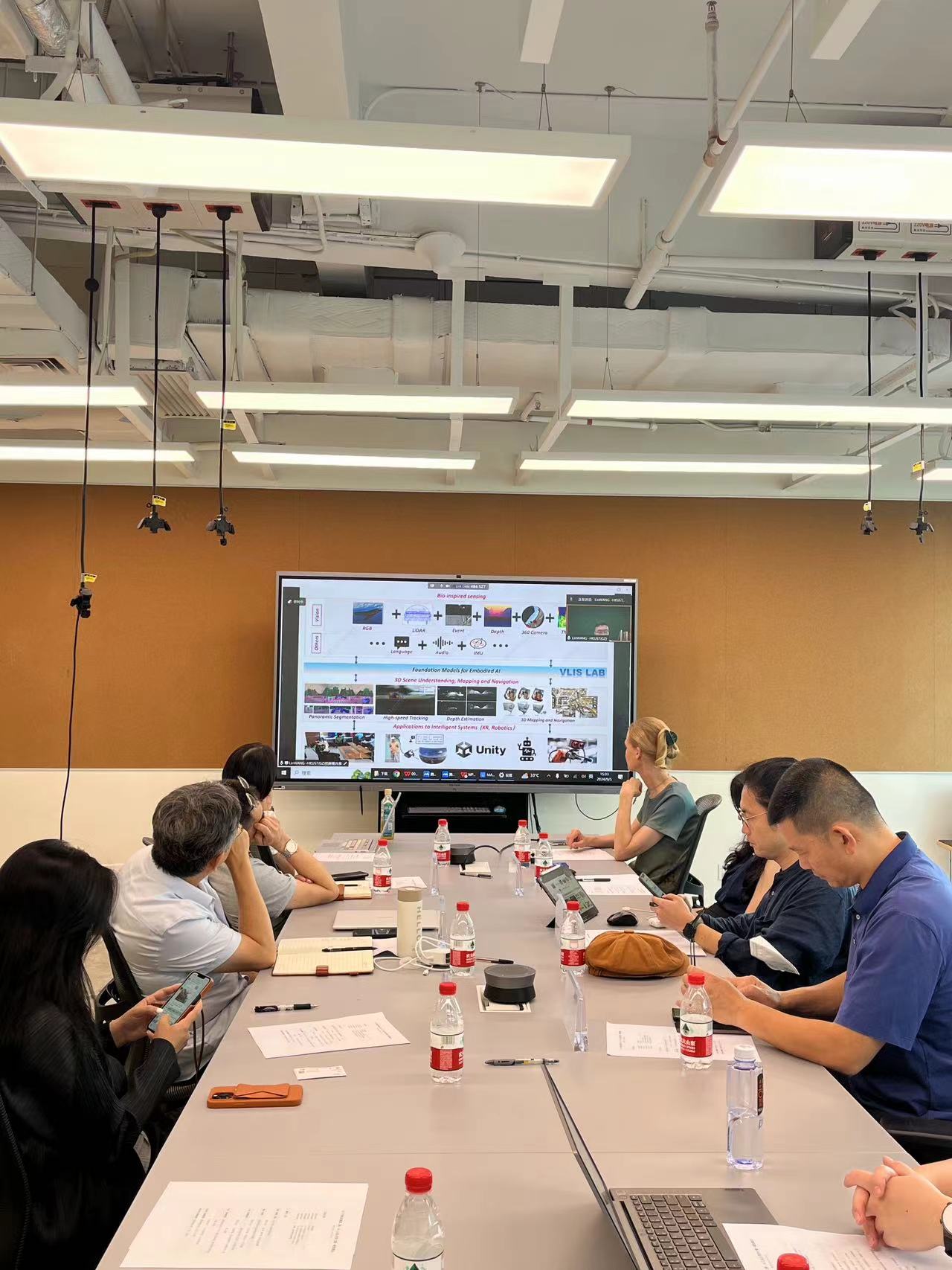
Online and Offline Participation During the Seminar
The demand for AI skills in the labor market is growing rapidly, with high premium placed on such skills. However, overuse of AI technology may also slow down corporate innovation. Therefore, leadership should accelerate talent cultivation and explore measures such as talent recruitment and government support to alleviate demand pressures.
This conference not only enhanced participants’ understanding of "AI + Sustainable Development" cooperation in the Greater Bay Area but also resulted in proposed initiatives such as strengthening industry-academia collaboration through websites, video channels, and mini-programs to showcase achievements, stimulate interest, and pursue shared development. The School of Design will continue to leverage the trinity of education, innovation, and talent to advance industry-academia-research collaboration and contribute design value.